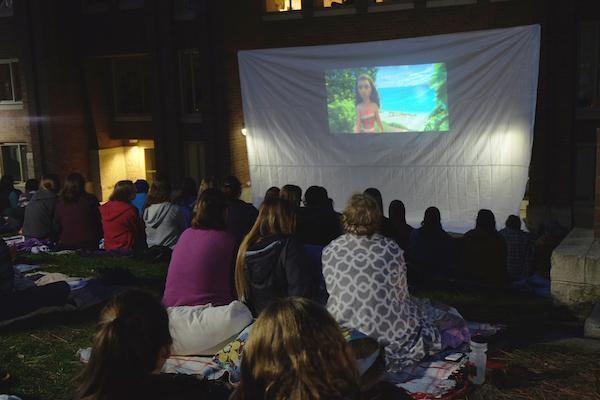Katie Shaw|Opinions Editor
“We at @Whitworth stand in solidarity with our international and undocumented students. They are us. We are Whitworth.”
Those words, posted on Facebook by President Beck Taylor on Jan. 30 were neither written nor taken lightly. To some, they were an affirming mark of Whitworth’s administration’s stand with its students. Others took the post and the stance Taylor’s administration has taken as resistance to the Trump administration and to the government. This is precisely why this action was so brave.
Taylor must have been aware of the consequences, both negative and positive. Whenever universities take a stance on anything, there is bound to be consequences, both in terms of image and reputation, and actual finances. Several comments on Taylor’s post implied that the stance would sway the writers from donating to or even attending Whitworth.
Deciding whether or not to align with one position or another is an ongoing struggle for universities, particularly for religious institutions like Whitworth, which has to consider the position of its associated church.
Taylor was right when he called the issue “personal” in an interview for The Whitworthian (see story here).

When the issue is as simultaneously personal and politically contentious as immigration, it makes sense that the notion of a “sanctuary campus” has become a common topic of discussion and deliberation. Gonzaga administration, for instance, is “determined to protect undocumented students,” according to The Gonzaga Bulletin. Trustees at EWU, meanwhile, responded to a petition from students by reaffirming commitment to students, but declining the official label of “sanctuary,” according to KREM 2.
Taylor and the administration did not necessarily choose the easy path, but they made a decision that was both noble and smart.
They could have accepted the term “sanctuary campus,” which a petition signed by 1,117 members of the Whitworth community called Taylor to do. However, Taylor makes an excellent point in the official statement titled “Statement on Recent Events Affecting Undocumented and International Students at Whitworth”: “The term “sanctuary campus” is vague and highly charged. It seems to have more utility in making political statements than in ensuring any real and meaningful protection for undocumented persons.”
He goes on to say that he is eager to implement policies protecting the rights of undocumented students, effectively making Whitworth a sanctuary campus without having to say so. He shouldn’t be blamed for this; the term “sanctuary campus,” referring to a campus with any amount of protective policy, is vague, and frequently misunderstood. Instead, Taylor defined his intentions in a well-written statement, while avoiding any misunderstandings or misguided conclusions.
On the other hand, Taylor and his administration could have declined to take an official stance, although the pressure for universities to do so must be intense.
This action shows a dedication to studentsrather than to its image, and is a noble one. Through this action, Whitworth exemplifies its Christian mission, and acts as an example for other universities to be just as welcoming.
Contact Katie Shaw at kshaw17@my.whitworth.edu









 Spokane?
Spokane?